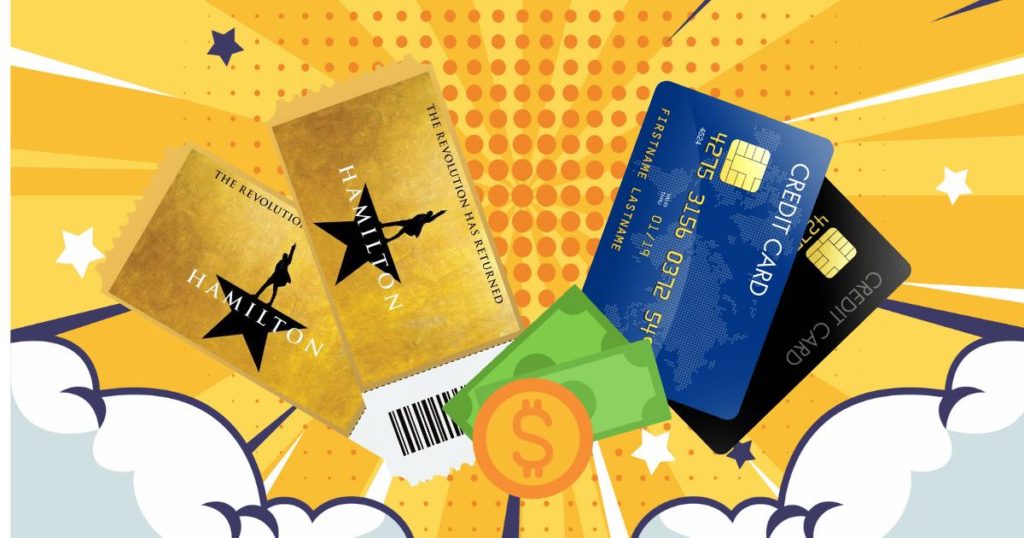If you’re a theater lover, you’ve likely heard of Hamilton. The musical has taken the world by storm since its premiere in 2015, garnering critical acclaim, numerous awards, and legions of fans worldwide. However, with this popularity comes a high demand for tickets, leading to controversies over Hamilton’s ticket pricing strategies. In this article, we’ll explore those controversies and explain the various pricing strategies used by Hamilton to sell tickets.

The Hamilton Phenomenon
Before we dive into the pricing strategies, let’s take a quick look at the Hamilton phenomenon. Hamilton tells the story of Alexander Hamilton, one of America’s founding fathers, using a blend of hip-hop, R&B, and traditional show tunes. The show’s creator, Lin-Manuel Miranda, wrote the book, music, and lyrics. The show premiered off-Broadway in 2015 before moving to Broadway later that year.
Since then, Hamilton has become a global sensation, with productions in London, Chicago, and San Francisco. The show’s popularity stems from its unique history, music, and diversity blend. The show features a predominantly non-white cast and has been praised for its inclusive representation of America’s founding fathers.
Hamilton Ticket Pricing Strategies
Now, let’s discuss Hamilton’s various pricing strategies to sell tickets:
- Premium seats offer the best views of the stage and can cost upwards of $1,000 per ticket.
- Lottery tickets are available for a select number of seats at each performance and cost only $10.
- There are rush tickets, released on the performance day, costing $10 or $40, depending on the seat location.
- There are regular tickets, which can range from $100 to $200 depending on the seat location and availability.
The rationale behind these pricing strategies is to offer a range of options for theatergoers. Premium seats are meant for those willing to pay top dollar for the best seats in the house, while lottery and rush tickets offer more affordable options for those on a tighter budget. The regular ticket prices fall somewhere in between.
Controversies Surrounding Hamilton Ticket Pricing
Despite these pricing strategies, Hamilton’s ticket prices have been controversial. One criticism is that the high prices make the show inaccessible to low-income individuals. This has led to accusations of elitism and exclusion, with some arguing that Hamilton is catering only to the wealthy.
Another controversy surrounding Hamilton’s ticket pricing is the issue of secondary market reselling. Some ticket brokers have purchased large blocks of tickets and resold them for exorbitant prices, often far above face value. This has led to outrage from theatergoers who feel that the reselling market is unfair and should be regulated.
In response to these criticisms, the producers of Hamilton have argued that the high prices are necessary to cover the show’s production costs and that the lottery and rush tickets offer more affordable options for those who might not be able to afford regular tickets. They have also taken steps to combat secondary market reselling, such as implementing new security measures and working with law enforcement to crack down on illegal reselling.
Possible Solutions and Future Directions
Despite these efforts, there is still room for improvement in Hamilton’s ticket pricing strategies. Some have suggested implementing a sliding scale pricing model, where ticket prices vary based on income or other factors. Others have suggested implementing more affordable options for groups or students.
Looking to the future, it will be interesting to see how Hamilton’s pricing strategies evolve as the show adapts to new audiences and technologies. Will we see more digital offerings or alternative pricing models? Only time will tell.
In the meantime, it’s clear that Hamilton’s ticket pricing strategies are a complex issue with no easy answers. On the one hand, high prices and secondary market reselling can make the show inaccessible to many. The producers should ensure that the show remains affordable and accessible. On the other hand, the high costs of producing a show like Hamilton’s must also be considered. The producers should be able to set prices that reflect the value of their work.
Conclusion
In conclusion, Hamilton’s ticket pricing strategies are a topic of much discussion and controversy. While the show’s popularity and unique blend of history and music have made it a global sensation, the high ticket demand has led to concerns about accessibility and fairness. Despite these concerns, the producers of Hamilton have taken steps to address these issues, and it will be interesting to see how the show’s pricing strategies continue to evolve. Ultimately, it’s up to each theatergoer to decide what they will pay to see this cultural phenomenon live on stage.
